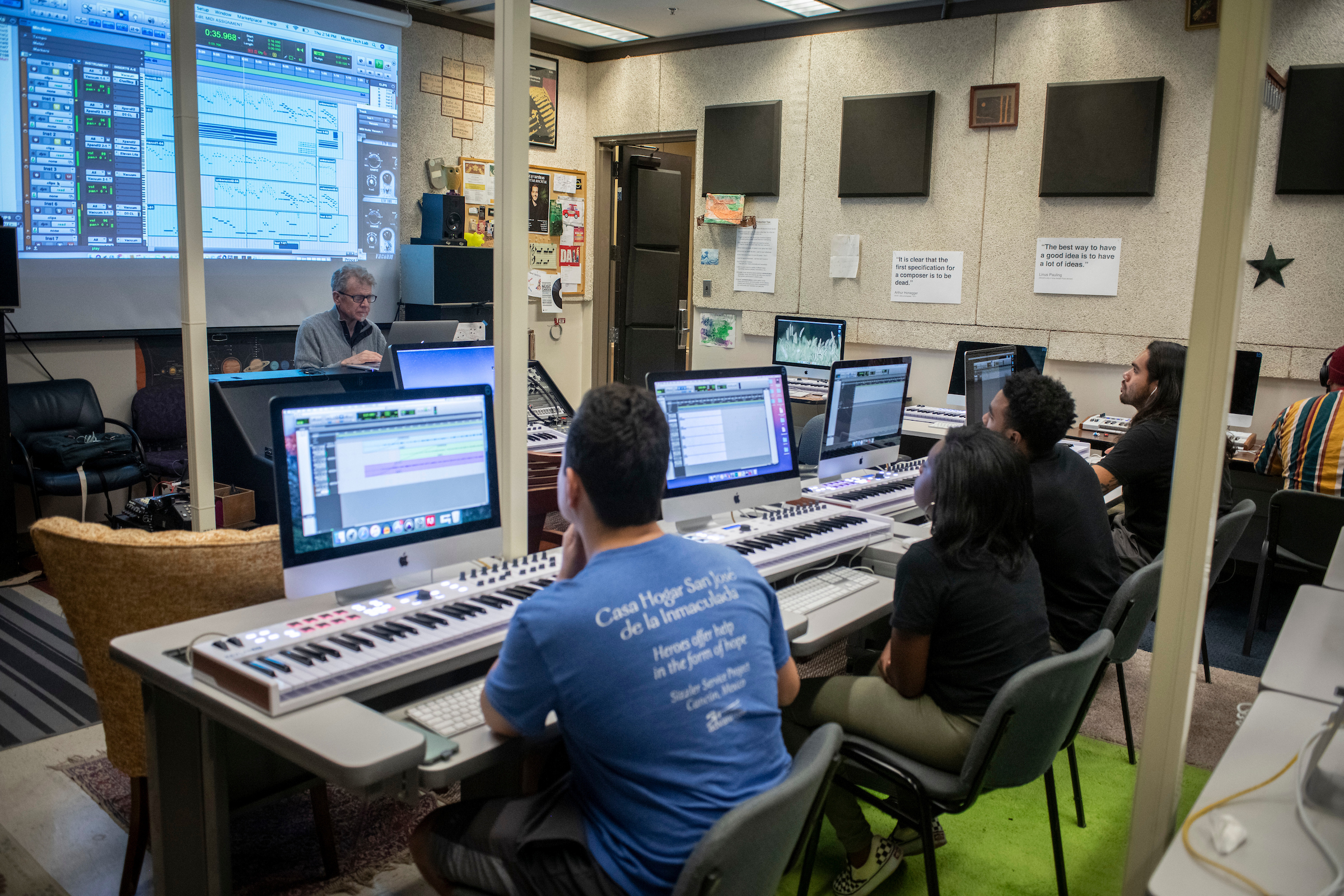Posted on October 29, 2024 by Nick Ward

The UTSA School of Music has launched its new Bachelor of Arts in Commercial and Digital Music this Fall. The degree has been approved by the THECB and a small inaugural class has already begun studies in this contemporary program designed to equip students with the skills to thrive in today’s digital music landscape.
The BA in Commercial and Digital Music addresses the evolving cultural and societal dynamics shaping music creation and consumption. In today's industry, graduates need more than musicianship and theory—they require a diverse skill set that can work with advents in music technology as well as respond to a marketing environment that emphasizes tools such as social media and streaming services. This degree bridges the gap between traditional music education and the demands of contemporary artists, focusing on modern, multicultural genres and industry-relevant topics.
Course curriculum includes courses in songwriting, film and video game music, popular music styles, the music industry, audio engineering, digital media, and music marketing. Students can customize their studies through selecting three out of the following focus areas in Music Technology, Composition and Production, Music History and Culture, and Music Performance.
The degree plan’s practical approach equips students with a well-rounded skill set and portfolio, preparing them for the anticipated employment growth in the media industry. According to the Bureau of Labor Statistics, employment for broadcast, sound, and video technicians is projected to grow by 10% from 2021 to 2031, with 13,200 annual job openings. Music producers, directors, and composers are expected to see a 6% growth from 2020 to 2030, with 20,800 annual job openings. The degree also prepares graduates with the possibilities of adding additional coursework in relevant disciplines outside of the School of Music for careers in artistic management, tour management, A&R coordination, concert promotion, and music streaming analysis.
Admissions for this degree offer new audition methods, allowing students to showcase their talents with electronic and multicultural instruments, diverse vocal styles, or even through a digital audio workstation (DAW). These innovative audition options open doors for prospective students in ways previously unexplored, reflecting the diverse community of prospective students attracted to UTSA and the wide array of careers available in the music industry.
“The BA in Commercial and Digital Music degree empowers digital natives who have non-traditional music backgrounds that are often not well-served by traditional music programs. Our committee designed the degree with these digital natives in mind, removing barriers to accessing higher music education for students whose primary musical instrument is a laptop rather than a piano, or a synthesizer rather than a violin. All music creators, with a diverse range of backgrounds and talents, are welcome to cultivate their dreams at the UTSA School of Music,” shared assistant professor of instruction Thomas Yee.
The BA in Commercial and Digital Music intersects with other UTSA School of Music programs, such as the BM in Music Marketing and the Minor in Music Technology, through shared courses in audio engineering and music business. This integration fosters networking opportunities among students with similar interests. Additionally, students in the new degree program can participate in music ensembles, including the Contemporary Studio Ensemble (MUS 3931), a new course developed specifically for this degree.
Miles Friday, assistant professor of music and music technology expert shared his thoughts on the influx of students into this new degree. "It has been fantastic to see the wealth of student interest and excitement around this new degree. Through it, I have observed students engaging in new and innovative forms of creative expression, interdisciplinary collaboration, and community-based artistic work. I can't wait to see the new creative partnerships and innovative artistry that students generate in the years to come."

